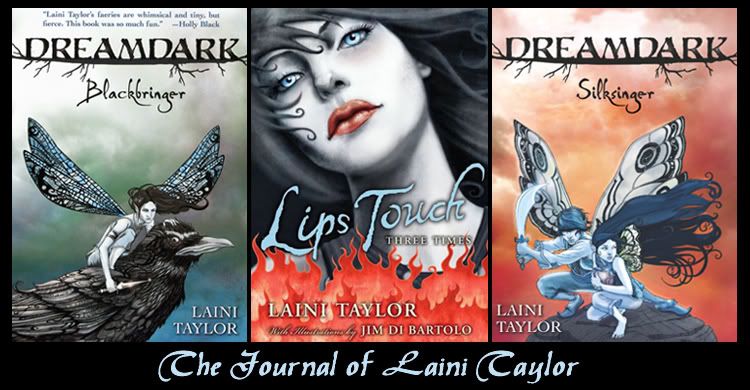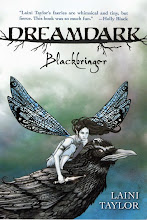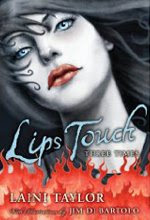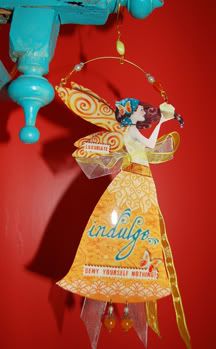 I'm a fan of pollination. I know that's really going out on a limb; it's like confessing to being a fan of. . . rainfall. Hurray, rainfall! But how often to we think about pollination (gardeners and bee keepers aside)? Me, not very often, but it definitely falls into the category of "Earth's greatest hits." What is it? Basically, it's the transfer of pollen from the [male] stamen of a flower to the [female] pistil of another flower, allowing the flower to develop seeds. It sounds kind of simple, but it's an amazingly complex system -- mind-blowing, really. There are a lot of different kinds of pollinators: flying insects are the most common, but also wind, birds, mammals like bats, even snails. I'd like to send a shout out to the pollinators of a few of my favorite plants:
I'm a fan of pollination. I know that's really going out on a limb; it's like confessing to being a fan of. . . rainfall. Hurray, rainfall! But how often to we think about pollination (gardeners and bee keepers aside)? Me, not very often, but it definitely falls into the category of "Earth's greatest hits." What is it? Basically, it's the transfer of pollen from the [male] stamen of a flower to the [female] pistil of another flower, allowing the flower to develop seeds. It sounds kind of simple, but it's an amazingly complex system -- mind-blowing, really. There are a lot of different kinds of pollinators: flying insects are the most common, but also wind, birds, mammals like bats, even snails. I'd like to send a shout out to the pollinators of a few of my favorite plants:- Cacao, dear to my heart, is actually pollinated by midges! (No, not midgets, though I wonder if that's where the Oompa Loompas came from!) -- tiny gnats, essentially. Hurray, little gnats!
- And mangoes are primarily pollinated by the insect order diptera, that is: flies. Not the glamorous honey bee, but plain old flies.
- For coffee, we have the honey bee to thank. Thanks!

Some other fun pollination factoids:
- The fig tree -- a keystone species (well, actually there are over 1000 fig species) of the rainforest ecosystem, responsible for feeding many, many critter species all year around -- is pollinated entirely by tiny fig wasps -- and yes, for each species of fig, there is a specific species of wasp.
- Butterfly-pollinated flowers tend to be brightly colored but not fragrant, since butterflies have poor senses of smell.
- Moths, however, have excellent sense of smell, and pollinate very sweet-smelling, night-blooming flowers, generally pale in color to be visible by moonlight.
- Get this: Moths are hover-feeders (like hummingbirds), and moth-pollinated flowers have deep tubes that correspond exactly to the length of the pollinator species' tongues! WOW!
- Bat-pollinated flowers smell musty and kind of funky, and they have to be sturdy to withstand the bats' bristly licking tongues. Having observed bats licking certain, er, body parts, at the zoo, I would say this would have to be a sturdy flower.

- Over 90 food crops in the US depend on honey bee pollination. Honey bee colonies are transported around to fulfill this function in, for example, the almond orchards of California. The value of this service performed for free by the bees is worth an estimated $18 billion in this country annually. I read another estimate last week (can't remember where) that the annual global value of pollination could come in at around $70 billion.
- Honey bees are in crisis. An estimated 40-60% of the honey bees in the US died or were severely weakened in 2005. California lost half of its bees! The Varoa mite is blamed for this crisis, and though this isn't getting wide-scale media coverage, it is a very serious matter if you happen to like to eat plants or to eat animals that eat plants, which I guess most of us do. The losses in 2007 to bee colonies are being called "unprecedented." Weird that there's not more talk about this!
So: pollination. Yay! Yay bees and midges and wasps and moths and bats and everything else. Thank you for feeding us. Thank you for flowers.
P.S. I am no scientist. Feel free to correct me on anything above or to tell me more. Thanks!
*Update*--thanks Tinker, for the link. The honey bee crisis is being called Colony Collapse Disorder and is very serious, and more can be read about it here.









12 comments:
I actually happen to be a Nobel Prize winning scientist for my discoveries about the hopping practices of girrorabbits and (cough cough) ALL of the information you have presented is totally false. FALSE. The bees haven't gone extinct. Most of them were set to retire and did so in 2005. (Most of them are living in condos now a few miles outside Miami if you don't believe me.) Next, the fig tree is actually a mammal. Next, cacao is not pollinated by midges. It is pollinated by mutant ninja turtles. Next, there is nothing musty about bat smells. Have you ever actually licked or smelled one? Well, I have, and they actually smell like strawberries but they taste like fig newtons. Theres a lot more to correct here but quite frankly, I haven't got time for the pain. xo
About the bees, well I've been reading about this for about the past month or so. It seemed to come out of the blue. Sounds scary but I'm also wondering if it's true or not.
I read that article last week also. Frightening to think what could happen with a change to one part of the ecosystem.
Phew! I don't eat plants OR animals that eat plants. My diet is pretty much limited these days to elbows, catnip, Guatemalan seashore pebbles, and homosapien boogers. Please say I am in the clear. Please. I love me's elbows. I can't seesme livin' wizout sum elboz' to chomp on now.
So much going on outside that I don´t even realise or think about - thanks for the insight, I´m going outside to watch the insects!
Thanks for bring this to people's attention, Laini - it's one of those things that seems so easy to dismiss, but it's a very real threat. Though I'm not a scientist either, I'm a gardener, and have been trying to follow this in the news for a couple of months and from what I've read, the varoa mite is only one of the culprits - there are a lot of other pathogens involved - it's being called Colony Collapse Disorder (CCD), and seems almost like the bees are immuno-suppressed. I think it's very scary, almost like they're the canaries (yikes, I hope not!) -and even if they don't do cacao, they do pollinate about a third of the average American diet.
Here's a link to more info on bees, which includes the prepared testimony by a professor of entymology from Penn State Univ. to the House Subcommittee on Horticulture and Organic Agriculture (which isn't as horrible to read as it sounds, and is pretty informative) - and some other links, like an NPR interview with another entymology professor, and a lot of other links.
Sorry to leave such a long comment - I'm slinking off quietly now...
oops! Here's the link, if you're still awake after all my babbling, lol:
http://maarec.cas.psu.edu/ColonyCollapseDisorder.html
Very interesting...I love how you look at the world.
Love,
D.
Hi Laini. I just found your blog through Jacket flap (I'm designingf) and I'm super impressed. I was scouting through the search and Growing Wings captured my attention, being a Designing Fairy and all. :) Do stop by mine if you get a chance.
And by the way, we rescued a honey bee from inside the house. I was amazed watching my husband carry it in his hand to outside!
It is scary about the bees. Albert Einstein made the comment once that mankind would die off in four years if the bees disappeared... (Why he said that, and why someone recorded it, I have no idea.)
Thank you for the fascinating scoop on world-wide pollination. :-) I had no idea about at least half of it.
Agree with amber. It's very scary. And sad. Bees are the cutest coolest creatures EVERR!!
The other facts make me wanna shout: "subhanallah ya habibi!"...something arab that's rubbed off onto me.
I also had heard, briefly, about the plight of the honyebees. Of course, I wonder if there are man-caused things at work here. We seem to stumble around and ruin a lot of stuff.
Thanks for all the fun info. Haven't been in touch much lately, but all is well.
Ted has been sending me links to articles about the honey bee crisis for months. At first, I thought he was a radical alarmist, but it seems he was right. Can we DO anything about this, I wonder? I'm off to follow your links. All I know is that we have to have HOPE. Love to you and Jim.
Post a Comment